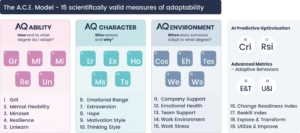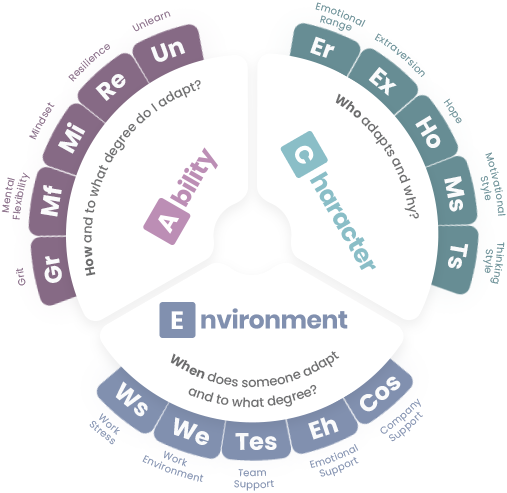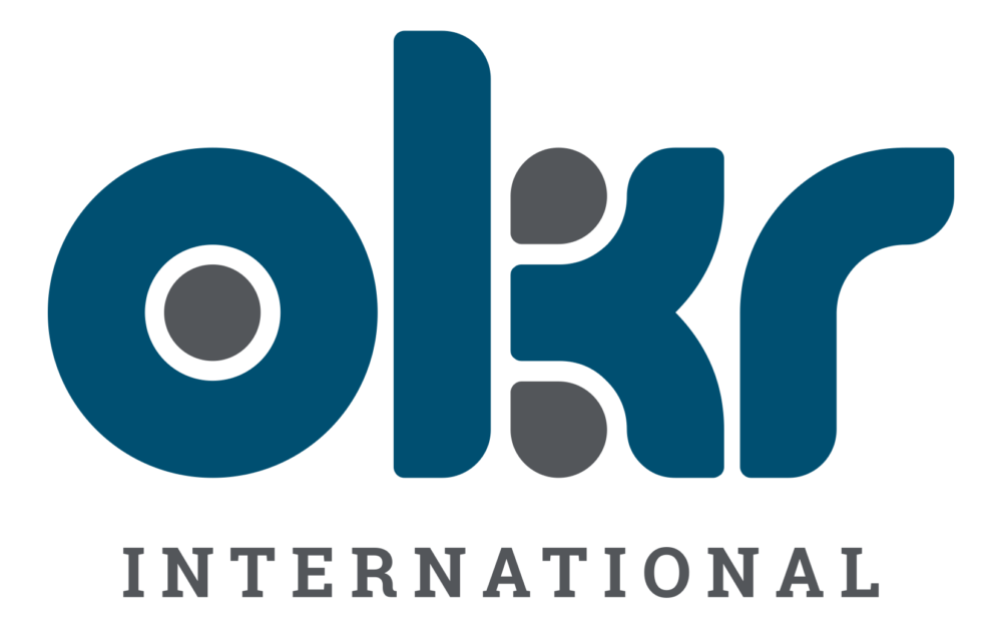Key Takeaways
- Agile transformation relies on the Adaptability Quotient (AQ) to foster sustainable change.
- High-AQ organizations excel by unlearning outdated behaviors and embracing change in their processes.
- Resilience, flexibility, and a growth mindset are crucial factors for successful Agile transformation.
- Building trust and transparency within teams strengthens support and psychological safety, essential for Agile practices.
- Measuring and improving AQ across teams enhances adaptability and propels Agile organizations towards future success.
Introduction: Why Adaptability Matters in Agile Transformation
Agile transformation is one of the most powerful levers for organizations seeking speed, customer-centricity, and innovation. Yet, while many enterprises invest heavily in Agile frameworks such as Scrum, SAFe, or Kanban, research shows that a large percentage of Agile transformations fail to deliver sustainable results.
Why? Because transformation is not just about processes or tools—it is about people.
The Adaptability Quotient (AQ), also called Adaptability Intelligence, is the missing link. AQ measures and develops the ability of individuals, teams, and organizations to unlearn outdated behaviors, embrace change, and thrive in uncertain environments.
Without adaptability, Agile risks becoming a checklist of rituals. With adaptability, Agile becomes a cultural shift that delivers long-term business agility.
Here are the 10 AQ factors that can fundamentally change your Agile transformation journey:

1. Unlearning: The Foundation of Change
One of the hardest parts of Agile transformation is not learning new frameworks but unlearning outdated ones. Leaders and teams must let go of command-and-control structures, rigid annual planning, and siloed decision-making.
Unlearning allows teams to challenge assumptions and replace outdated practices with Agile behaviors such as iterative planning, decentralized decision-making, and customer-first thinking. High-AQ organizations see unlearning as a continuous process, not a one-off event.
2. Resilience: Bouncing Back from Setbacks
Agile thrives on experimentation, but not every sprint will succeed. Teams face failed releases, conflicting priorities, and shifting markets. Resilience ensures setbacks are not final but fuel for growth.
High-AQ teams quickly recover, reflect, and realign. Resilience reduces change fatigue, sustains energy during long transformation journeys, and builds psychological safety.
3. Flexibility: Responding to Change Over Following a Plan
The Agile Manifesto prioritizes “responding to change over following a plan.” Flexibility is about cultivating a mindset that embraces new priorities without resistance.
High-AQ teams pivot easily when customer needs shift or new opportunities emerge. Flexibility ensures that Agile transformation remains dynamic, scalable, and relevant.
4. Emotional Range: Navigating Complexity with EQ
Agile is people-centered. Feedback loops, retrospectives, and daily stand-ups often expose tension and conflict. Emotional Range—the ability to experience and regulate diverse emotions—empowers leaders and teams to navigate these dynamics.
High-AQ leaders balance empathy with accountability, celebrate progress, and handle criticism constructively. This emotional intelligence builds trust and cohesion, critical for cross-functional collaboration.
5. Growth Mindset: Fueling Continuous Learning
Agile thrives on continuous improvement. A growth mindset—seeing challenges as opportunities—is at the heart of adaptability.
High-AQ individuals embrace feedback, iterate quickly, and learn from every sprint. Leaders with a growth mindset model curiosity and openness, setting the tone for an adaptive culture.
6. Hope: Sustaining Transformation Energy
Large-scale Agile initiatives can be overwhelming. Hope provides the emotional fuel to persevere.
High-AQ organizations cultivate hope by celebrating quick wins, sharing inspiring stories, and creating a vision that feels both achievable and meaningful. Hope sustains motivation and connects teams to a larger purpose.
7. Grit: Driving Long-Term Persistence
Agile favors short cycles, but transformation itself is a marathon. Grit—the passion and perseverance for long-term goals—is crucial for maintaining momentum.
High-AQ teams stay the course despite obstacles, keeping Agile principles alive through leadership changes, budget constraints, and resistance. Grit ensures Agile becomes a lasting cultural shift.
8. Motivation Style: Driving Energy in Agile Teams
Agile transformations demand more than new workflows—they require energy. Motivation Style explains how individuals push themselves towards goals during change.
Play-to-Win: Thrives in Agile, embracing risk-taking and bold experimentation.
Play-to-Protect: Focuses on minimizing risk, which provides stability but may slow innovation.
High-AQ organizations recognize these differences and create environments where all styles contribute to Agile success.
9. Team Support: Building Trust and Transparency
Agile lives or dies on culture. Team Support measures how safe employees feel to share ideas, ask for help, and experiment.
-
High-AQ teams embrace radical transparency, openly discussing mistakes as learning opportunities.
-
Moderate-AQ teams share selectively but may hold back under pressure.
-
Low-AQ environments reinforce silos, secrecy, and blame—undermining Agile principles.
Strengthening Team Support builds psychological safety, the cornerstone of Agile practices like retrospectives and continuous improvement.
10. Environmental Readiness: Creating the Conditions for Success
Adaptability is not just about people—it’s also about the systems they work in. High-AQ organizations design environments that support agility.
This includes rewarding adaptive behaviors, building leadership models that enable rather than control, and embedding psychological safety. Without the right environment, even the most adaptable people will struggle.
Conclusion: AQ is the Fuel for Agile Transformation
Agile is often seen as the vehicle for transformation, but AQ is the fuel that powers it. Processes provide structure, but adaptability ensures sustainability.
Organizations that measure and build AQ across individuals, teams, and environments dramatically increase their chances of Agile success. By strengthening unlearning, resilience, flexibility, emotional range, mindset, hope, grit, motivation style, team support, and environmental readiness, you build not just Agile teams but adaptive organizations ready for the future.
To accelerate your Agile journey, measuring your Adaptability Quotient with tools such as AQme and AQteam provides actionable insights. By integrating AQ into Agile transformation, adaptability becomes part of your organizational DNA.
Bring the Adaptability Quotient (AQ) to your organization
Synergogy, a subsidiary of OKR International, specializes in helping leaders and teams unlock their Adaptability Quotient (AQ) to navigate uncertainty with confidence, agility, and purpose. Backed by the globally recognized AQai framework, our programs help you unlock measurable, science-based adaptability, right when you need it most.
- Want to assess your team’s AQ profile?
- Looking to run an AQ-powered leadership program or workshop?
- Curious how your organization scores across the ACE model (Ability, Character, Environment)?
Let’s start the conversation.
Email: info@okrinternational.com
WhatsApp DM: +971 55 216 0708
Download Sample Report: AQme (Personal Adaptability Quotient – Sample) | AQTeam (Team AQ Sample)



